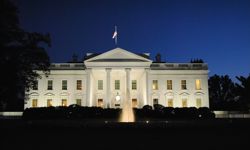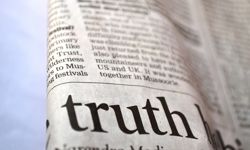In a letter to all the leaders of the main UK political parties, the Society, which represents more than 400 editors in national, regional, local and broadcast media, has called for manifesto commitments to protecting press freedom and of support for the public’s right to know during the election campaign.
The letter states: “On behalf of our members, we are deeply concerned that creeping legislation continues to pose a pernicious threat to press freedom in the UK. Ahead of World Press Freedom Day on 3 May 2017 we seek your assurance that the promotion and extension of media freedom in the UK will feature highly on your party’s agenda during the election campaign and that your support for the public’s right to know will be contained in your manifesto.”
The Society, which campaigns for press and broadcasting freedom, went on to set out three areas in which its members had growing concerns about the impact proposed legislation was having on investigative journalism and called for a greater commitment to promoting the value of media freedom in a democratic society.
Citing Section 40 of the Crime and Courts Act, the UK’s ranking in the World Press Freedom Index for 2017 and the increased use of surveillance powers to curtail journalistic activity, the Society urged the party leaders to make assurances that maintaining and extending freedom of expression would be high on their agenda.
On Section 40, the letter said: “The Society’s members are concerned that freedom of expression in the UK is under a sustained attack on a number of fronts. While the Society welcomed the Secretary of State’s review of the need for the commencement of Section 40 costs orders in 2016, we remain deeply opposed to the commencement of the legislation on the basis of the clear danger it poses to press freedom and the public’s right to be informed. There has been an arduous 300-year battle to achieve a measure of press freedom and freedom of expression in the UK and the current threat of legislation to impinge upon the work of journalists in the UK is having a chilling effect on the country’s reputation both at home and abroad.”
The letter also called on individual parties to consider the impact repressive legislation in the UK would have on regimes abroad and asked for further consideration of legitimate concerns around the Law Commission’s proposals on official data.
It added: “As you will no doubt be aware, the recent publication of Reporters Without Borders’ World Press Freedom Index for 2017 saw the UK once again fall in the rankings to 40th out of 180 countries. In the past five years, an obsession with surveillance and attacks on the media by anti-establishment politicians has resulted in a declining state of press freedom which has seen the country slip 12 places in the Index. The UK, once considered a bastion of journalistic freedom and a benchmark by which other countries set standards in respect of the freedom of the press, is now considered on the international stage to be significantly less free than countries such as Ghana, South Africa and Chile. This is gravely concerning at a time when the UK should be taking an international lead in promoting the value and importance of press freedom and condemning appalling restrictions placed upon freedom of speech such as those currently being witnessed in Turkey.
“The increasing use of surveillance powers to restrict the freedom of the media continues to be under attack from Law Commission proposals to radically increase prison terms for revealing and handling state secrets. While the Society has welcomed assurances by the Prime Minister that the freedom of investigative journalists and whistleblowers will not be restricted under the proposals, we remain of the view that it is essential that the government consult more widely on such recommendations. A free press is a fundamental aspect of any functioning democracy. The bedrock of a free press is the ability of journalists to do their work without the secret interference of the state. I urge you and your colleagues in the party to look again at this legislation and use your powers of scrutiny to ensure that the proposals are looked at again.”










